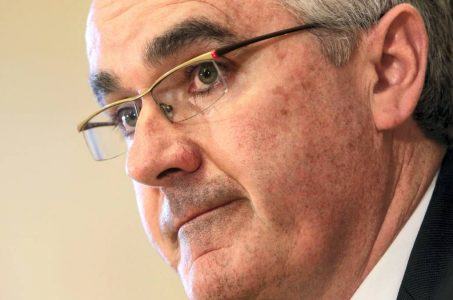Philippines Gaming Regulator PAGCOR Claims Missing Casino Owner Not Paying His Fair Share of Taxes
Posted on: December 15, 2016, 07:31h.
Last updated on: December 15, 2016, 11:26h.
PAGCOR, the Philippine Amusement and Gaming Corporation, clarified this week that wanted Chinese citizen Jack Lam has a “perpetual” casino license in the country, but claims he is failing to pay the appropriate gambling taxes. Lam owns and operates Fontana Hot Spring Leisure Parks in Clark and Fort Ilocandia Resort in Laoag City.

According to PAGCOR Chairperson Andrew Domingo, who Lam reportedly tried to bribe to look the other way, Lam is only paying a one percent gaming tax on his junket revenue. Junket companies, or VIP touring companies, bring in wealthy gamblers who receive “free” gambling chips to play with.
Other Filipino casinos pay a 10 percent tax, but Lam says he only receives 10 percent of junket earnings, and ten percent of ten percent is one percent. Keeping up?
Domingo says Lam’s tax structure is based off an agreement he reached with the Philippines before President Rodrigo Duterte’s reign began.
Duterte has been gambling’s enemy #1 since he took office in June. The highly controversial and ruthless leader is without question winning his crusade against illegal narcotics and underground gambling syndicates.
Tax and Gamble
Earlier this month, the Philippine National Police (PNP) obtained a warrant for Lam’s arrest, but the billionaire quickly jumped town, most likely to China. Lam was reportedly accused of running an illegal online gambling network from his company’s casino headquarters on the former grounds of a US Air Force base that is now a business and tourism hub.
But Duterte recently eased his position on gambling due to inadequate enforcement personnel. Instead, the Filipino president is focusing his manpower on infiltrating drug gangs, and to date, reportedly over 6,000 alleged cartel members have been killed without any sort of legal due process.
Duterte also vowed to “destroy” those involved in online gambling. He kept his word by ordering PAGCOR to not renew PhilWeb’s gaming license, which forced the company’s 300 gaming cafes to shutter.
The leader then changed his tune, likely due to disappearing tax revenue. Now, Duterte says if companies pay the correct taxes and the casinos and online sites are regulated, “gamble until you die. I do not really care.” He now says he’s ready to negotiate with Lam.
“He only pays one percent, but the rest of the guys there are paying 10 percent,” Duterte said recently. “I just said, pay taxes, don’t bribe anybody.”
Risky Business
Professional gamblers have an uncanny ability to manage high levels of risk, and it appears Lam also possesses that emotional asset. Instead of agreeing to follow the Philippines president’s dictums, Lam declared his tax rate had already been upheld in the nation’s highest court.
Domingo says he needs to renegotiate or otherwise could lose his “perpetual” license. But observers believe Lam’s facing a much graver sentence.
Duterte has basically given the PNP free reign to take a “shoot first, ask questions later” approach with cartel members. Though Lam isn’t wanted on drug charges, the head honcho’s merciless control is reason enough for a few restless nights.
Possibly for that reason, as of this writing, Lam remains at large.
Related News Articles
Most Popular
Mirage Las Vegas Demolition to Start Next Week, Atrium a Goner
Where All the Mirage Relics Will Go
Most Commented
-
Bally’s Facing Five Months of Daily Demolition for Chicago Casino
— June 18, 2024 — 12 Comments -
Chicago Pension Mess Highlights Need for Bally’s Casino
— July 2, 2024 — 5 Comments
















No comments yet